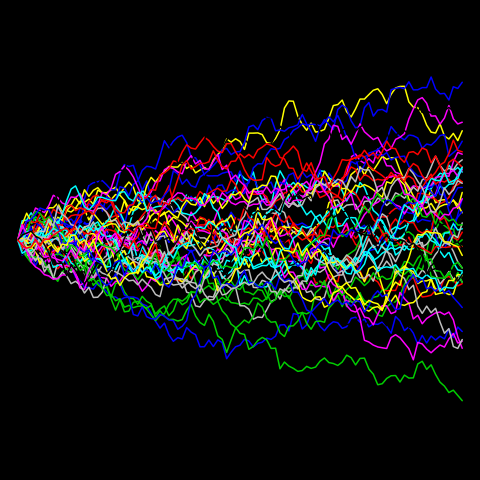What is probabilistic truth? Part 2 – Everything is conditional
Want to share your content on R-bloggers? click here if you have a blog, or here if you don't.
When making a statement of the form “1/2 is the correct probability that this coin will land tails”, there are a few things which are left unsaid, but which are typically implied.
The statement is one about the probability of an unknown event occurring, and it would seem reasonable to write this statement using probability notation as P(toss=tails) = 0.5. And indeed many people would express it this way. However, what is missing is the state of knowledge under which this statement has been made. For instance, is the coin yet to be flipped, or is it currently rolling in a circle on the table, leaning in toward its final resting position? Perhaps the flipping device can consistently throw a coin such that it rotates exactly 5 times in the air before landing flat on the table, or we know which side is up at the start of the flip. In these latter cases, the statement of probability would be made under considerably more knowledge than the first, and would not tend to be 0.5 in these cases. An observer placing a probability of P(toss=tails) = 0.99 at the moment when the coin is circling in on its resting position, leaning heavily toward a tails up configuration, could be said to have the correct probability also. For fairness, lets say that the first observer also makes her probability statement at the same moment, but from another room where she cannot see what has happened.
How can P(toss=tails) = 0.5, and P(toss=tails) = 0.99 be simultaneously correct?
The answer is conditioning. Each of the statements were made conditional on the observer’s state of knowledge. More completely, the two statements can be rewritten as:
P(toss=tails | knowledge of observer 1) = 0.5 , and
P(toss=tails | knowledge of observer 2) = 0.99
In practice, however, we often leave out the conditional part of the notation unless it is germane to the problem at hand. However, there is no such thing as unconditional probability. In fact, Harvard professor Joe Blitzstein calls conditioning the Soul of Statistics.
In the next post in this series, we’ll start looking at how to assess the correctness of a (conditional) probability statement after having observed an outcome.
R-bloggers.com offers daily e-mail updates about R news and tutorials about learning R and many other topics. Click here if you're looking to post or find an R/data-science job.
Want to share your content on R-bloggers? click here if you have a blog, or here if you don't.

